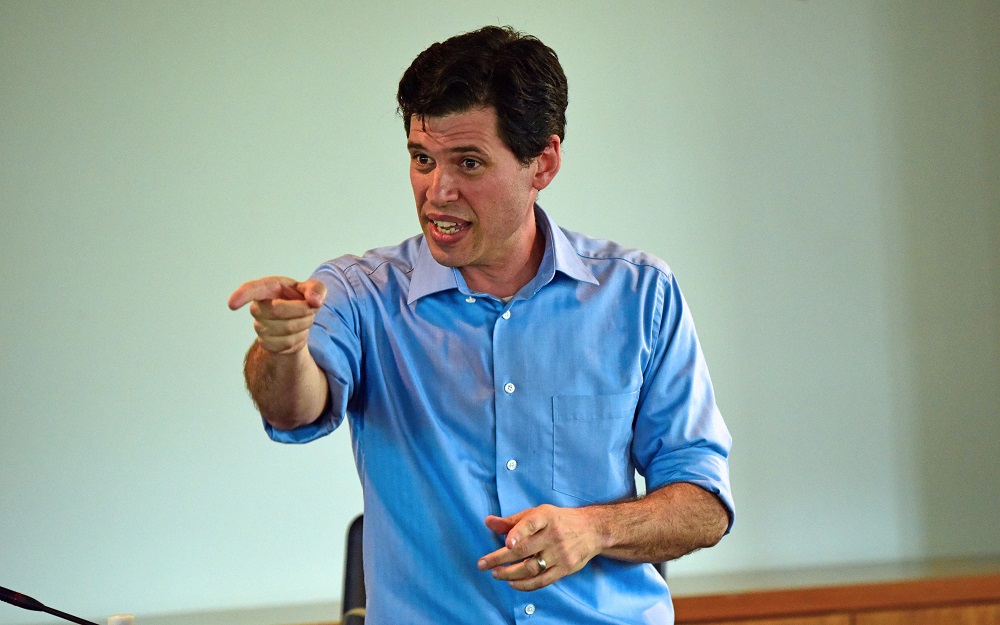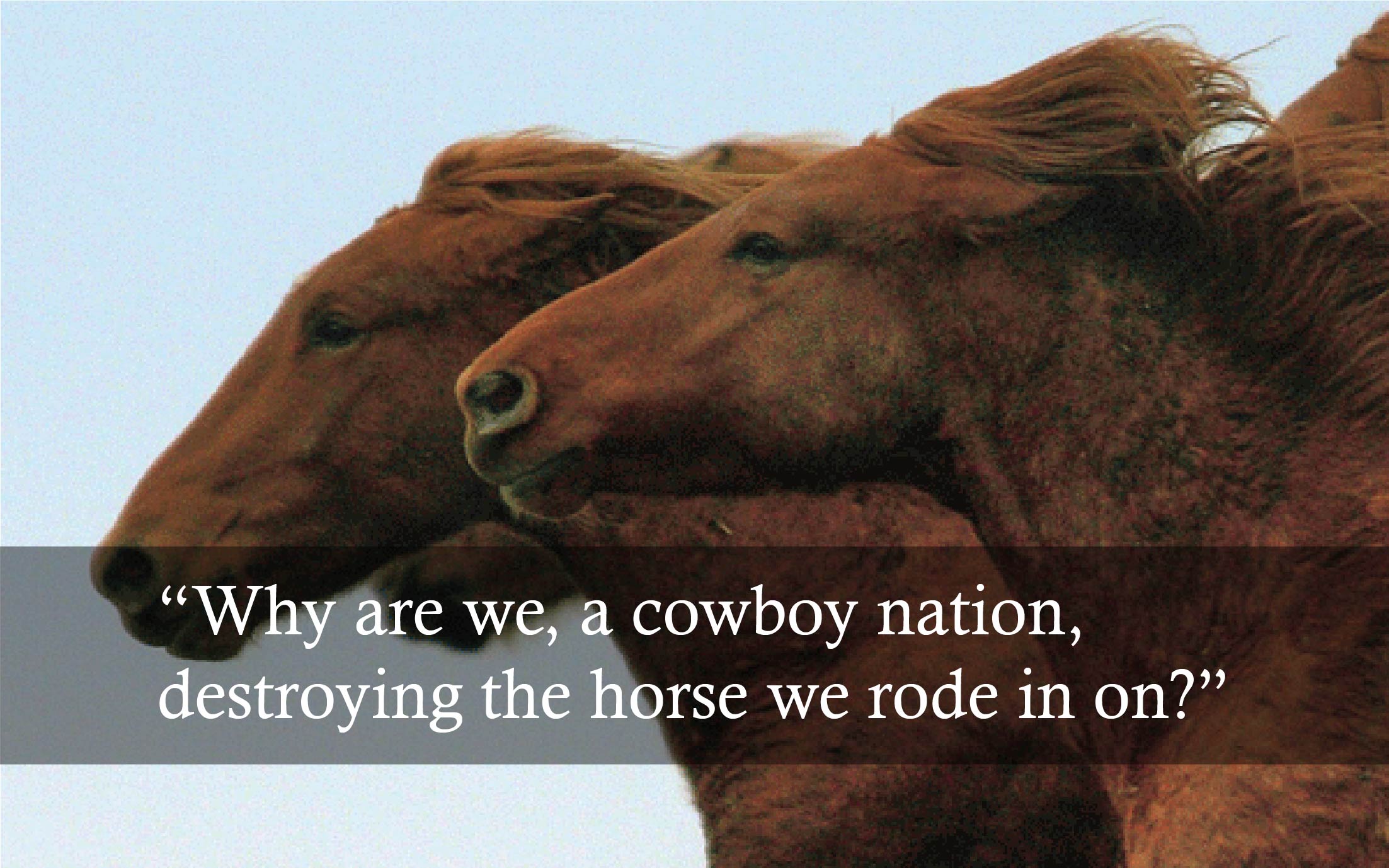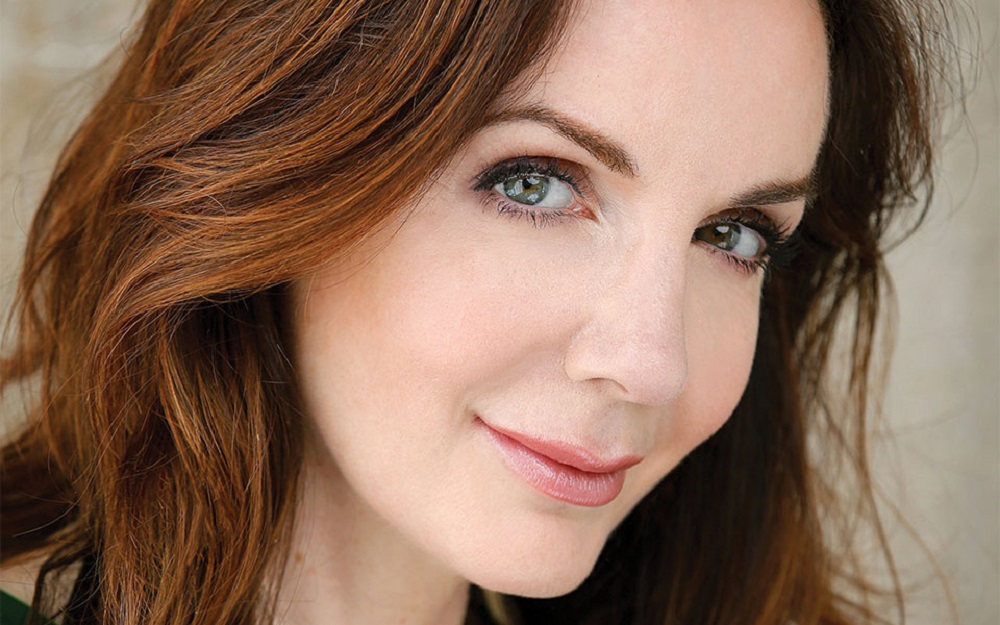
Max Brooks Master Class
In correspondence with Chapman University’s INTERSTICES: Surviving the End of the World, an interdisciplinary panel on stories of disaster and apocalypse, the Wilkinson College of Arts & Humanities invited graduate students from the various Chapman colleges for an hour-long master class conversation with author Max Brooks. Max Brooks is the bestselling author of the novels World War Z and The Zombie Survival Guide and graphic novels like The Harlem Hellfighters. While dubbed a master class, the session was more an interactive Q&A with Brooks encouraging the students to ask any and all questions. He discussed his writing process, his experience with the writing industry and his own inspiration for writing. Brooks was interviewed by Alison Williams, Editor-in-Chief of Anastamos.
We took away four major lessons on writing from the master class with Max Brooks:
1. Passion is important for writing, especially when you’re dealing with people in the industry.
“For me, it was all the question of passion, all the question of what am I writing that I want to read and that’s always been my favorite authors. They tend to be people who come to writing later in life and have other jobs and do it as a side thing and then it takes off. For me it’s about passion and it’s the only way I know how to survive criticism.
Now if he [referring to the general students in the room] goes into a regular job, then he can stay inside that little millennial bubble and not get hurt. But if he’s an artist, holy shit are you in for it. And that’s if you’re successful. If you get your shit out there, they will come for you and your parents can’t protect you. And this little school that just wants your parent’s money and is right now protecting you; they can’t protect you. No one can protect you. He’s going to get out there and he’s going to be subject to the most vicious, horrible criticism, what some people would call cyber-bullying, he’s going to call Wednesday. And the only way he’s going to be able to survive that is by loving what he does. Every minute of every day. Even when he hates it, he has to love it. Because that’s the only way to survive. Because otherwise don’t do it.
Don’t think you’re gonna become a screenwriter because people are going to love you, people are going to take giant dumps all over you every day and that’s just life. And that’s not just the people that are in your very business, because if you’re going to be a screenwriter, you’re going to have to deal with every day with a group of people who are part of a jobs program for the mentally deficient (they’re called creative executives) and their job is to turn good scripts into bad scripts and those are your bosses and after you go through them and then get your movie out there, some shithead on some website is going to basically pee all over you, so you have to love it. Any one of you whose considering doing anything artistic, you have to love it, you have to keep going, because that’s all you can do when you try to be artistic.”
2. Playing Minecraft on Survival Mode is a great lesson on life and writing.
“When my son got into Minecraft, I got into it with him and I realized this is more than just a game. If seen through the right lens, Minecraft can teach you how to survive real life. If you play it on the survival level, it teaches you about patience and planning and dealing with failure, everything you need to know for out there. And you never stop learning no matter what age you are.
I think the creative level should be played sparingly. It’s really good for creating awesome structures, but it doesn’t teach you the awesome lessons that Minecraft really has to offer, because you just get stuff handed to you. And that’s not a great lesson for surviving life. Nobody’s going to hand anything to you. I don’t know any rules for writing, but I do know some rules for surviving writing. And in my survival guide, you need discipline. You need to keep doing it, like Matt [a screenwriting student in the session] is going to write the first draft of his script and it’s going to be awesome and creative and it’s going to flow. That’s great. He’s going to need to do 17 more drafts and that’s not going to be awesome and beautiful but the shit’s gotta get done. That’s called writing. That’s discipline. That’s a job.
And you learn that when you play Minecraft on survival. You have to stockpile food or else you will starve. And it’s not always fun to plant that wheat. But you gotta do it. You gotta clear the ground. And then it teaches you patience. That wheat’s gonna grow. And yelling at it’s not going to help. And you better find something else to occupy your time while this is happening. Minecraft teaches you time management. I have x amount of daylight hours before the mobs come out. I have to use my time well because then when I’m forced underground, there’s stuff I can’t do outdoors. What can I do indoors, what can I do outdoors? It teaches you how to plan. In order to plant that wheat, I gotta punch that tree, make tools and get seeds. What do I need to do first? So all these lessons are amazing. These are lessons that as a middle aged dude, I’m still struggling with. This is an amazing game and it teaches you how to recover from failure.
In Minecraft, as I have done, you can build a beautiful house that takes you forever and accidentally burn it down. So what are you going to do? Cry over it and quit and not play Minecraft again or are you going to clean up the windows that are still hanging in mid-air and build another house? So that’s the thing that Minecraft teaches me. I thought, if you write a Minecraft novel, take time to note those lessons so that they’re clear. And that’s what I’ve done.”
3. Juggle your time wisely.
“I wrote the novel in my spare time and I became a screenwriter because I didn’t care as much. I didn’t get sports and academics. I sucked at. So I had nothing except my writing. I wrote my first short story when I was 13 and it was like a world I could hide in. Every day for two hours a night, for my life, I would hide in my room every day from 9-11 and write. And I thought that I can’t show this to anyone. All I had was this thing. If I bring my writing out into this world and it gets judged, it gets judged poorly, well then it’s time for the heroin needle. So I kept it away.
When I wrote Zombie Survival Guide, I thought I cared too much about this to see the light of day. Maybe I’ll hit something I don’t care much about like screenwriting or SNL. And it was actually when I was on SNL that I took the book back out and dusted it off. It was time to put up or shut up. It was time to be brave and take something that I care about it, which is novel writing and let it into the world. And be done. Because I can’t hide from it anymore. That’s how I did that.
Now, I’ve had to adapt it because I used to be a night writer before I had a child. The problem is that I’m the kind of writer where the best stuff comes at the end of the day. And it’s hard because at the end of the day I’ve gotta go pick up my kid from school or I gotta go home. And the hardest part for me is switching the brain off because I’ve gotta go home and all the cylinders are firing and god forbid there’s a problem I need to solve and I can’t let go of that. I’m like a dog with a chew toy. I gotta take off the writer jacket and be a father and a husband.
And my wife’s going to have problems and my kid’s going to have problems. And at that moment, their problems come first. I can’t say to them all, you all go to hell, I am a writer. Some guys did that. I think the toughest part is the juggling. I need a space. My wife’s a writer too—she’s a playwright. So for us, the juggling comes down to deadlines. Whoever has a deadline gets priority. If she’s got a deadline and I don’t, then I’m Mr. Mom. I’ll pick him up from school; I’ll take him to tap dance. I’ll do what I gotta do. I’ll deal with the plumber. That’s on me. If I’ve got a deadline, she’s gotta do it. So that’s how we’ve managed to organize our schedule.”
4. Always follow your passion because you never know where it will lead you.
“I kind of wrote Zombie Survival Guide, the way Tom Clancy wrote Hunt for Red October. He was not a writer, he was an insurance salesman. At the end of the day, he’d write a little bit of Hunt for Red October. While I was writing scripts during the day and then at night, I was writing a secret project that only I thought I would want to read. I didn’t think anybody else cared. And it was called Zombie Survival Guide. Nobody was into zombies in the 90’s. We had an awesome life, but there was this looming fear called Y2K and people were starting to panic about it and I had always been scared of zombies. Always.
So Y2K is happening and I’m thinking, what if there’s a zombie outbreak and not the kind you see in the movies; what if there was a real zombie plague? The more I thought of it, the more I realized that 90% of people would not die from zombies. They die from malnutrition or dehydration or some sort of disease or they prick themselves on a rusty nail and get Tetnus or they fall and break their leg and not be able to hunt. That’s what happens when this incredible web of first world safety and security breaks down. People die from secondary and tertiary problems, not the primary problems.
Growing up in Southern California with the threat of earthquakes, we had earthquake kits and we always planned like how are we going to survive. In an earthquake most of us aren’t going to die by something falling on us; most of us are literally going to die of dehydration. So I took all that knowledge and I took some personal experience that I had. When I was in college for the first year, I was in ROTC so that’s where the beginnings of my weapons knowledge came from. So when I’m talking about the M16 being a crappy gun, I can tell you from personal experience, it really, really is.
So I sat down and wrote a book. For me. And I shoved it in a drawer. I didn’t think anyone wanted it. And then when it got published, they tried to market it in the humor section. Because once again, zombies were not popular. And people thought, well he’s just written for Saturday Night Live; he’s won an Emmy and he’s Mel Brooks’ son, so clearly he wrote this making fun of zombie nerds. He can’t be that much of a loser. This guy clearly didn’t really think about it. He’s lampooning and I said, “No, I am as much of a loser as you think I am. I’m really into this.” So I had to start doing zombie lectures to self-market it. And that’s when it sort of took off because I knew other people are into this just like me.”
Photo credit: Dennis Arp



